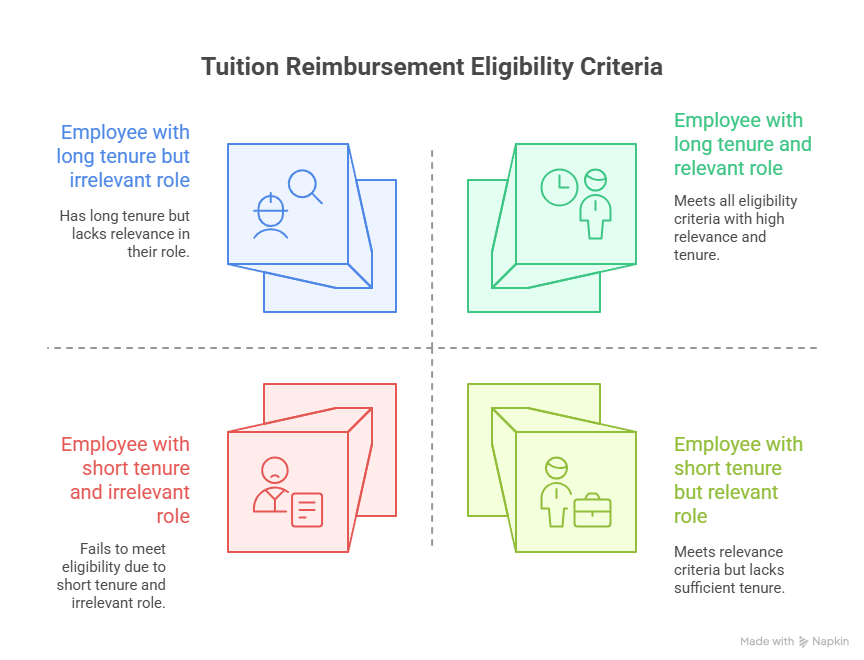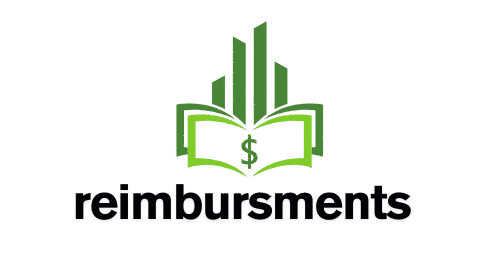Did you know that almost 60% of US employers provide their staff with some kind of employer-sponsored tuition assistance? In order to draw and keep top talent in the labor market, this benefit has grown to be essential.
Student tuition reimbursement programs are becoming more and more crucial for people who want to continue their education without taking on a lot of debt as the cost of higher education keeps rising.
Many businesses are anticipated to improve their tuition reimbursement programs in 2025, so now is a great time for professionals and students to take advantage of these opportunities.
People can make well-informed decisions regarding their educational goals and professional development by being aware of the reimbursement programs that are available.
Understanding Student Tuition Reimbursement Programs
Employees looking for financial aid must comprehend tuition reimbursement benefits due to the growing expense of education. These initiatives are intended to assist staff members in paying for additional education, which will improve their abilities and help them progress in their careers.
What Are Tuition Reimbursement Benefits?
Employers provide tuition reimbursement benefits as a component of their benefits packages to assist staff members in funding their education, certifications, or degree programs. This benefit, which covers a variety of educational costs, is a component of the tuition reimbursement policy that differs from company to company.
How These Programs Typically Work
In order to help employees pay for their training, certifications, or degree programs, employers include tuition reimbursement benefits in their benefits packages. This benefit is a part of the tuition reimbursement policy that varies from company to company and covers a range of educational expenses.
Common Eligibility Requirements
Tuition reimbursement eligibility is frequently based on performance, length of service, and job role. In order to avoid having to pay back the reimbursement, some employers demand that workers stay with the company for a specific amount of time after finishing their education.
| Eligibility Criteria | Description | Typical Requirements |
|---|---|---|
| Job Role | Relevance of the course to the employee’s current or future role | Directly related to job function |
| Length of Service | Minimum period an employee must have worked with the company | 6 months to 1 year |
| Performance | Employee’s performance record | Satisfactory or above performance reviews |

Top Corporate Tuition Assistance Programs for 2025
As 2025 approaches, many companies are providing outstanding tuition assistance programs to support their staff members’ professional development. In addition to helping employees, these initiatives also help businesses become more competitive and grow as a whole.
Retail and Service Industry Leaders
Leading the way in providing the advantages of corporate education are the retail and service sectors. There are two noteworthy programs:
- Starbucks College Achievement Plan: Through Arizona State University Online, Starbucks provides a comprehensive tuition reimbursement program that pays for the entire cost of a first-time bachelor’s degree.
- The Walmart Live Better U Program offers its employees up to $12,000 in annual tuition assistance for a range of degree programs and certifications.
Technology and Healthcare Sector Benefits
The healthcare and technology industries are also making significant investments in the education of their staff members. Among the important programs are:
- Amazon Career Choice Program: Regardless of whether the skills are applicable to their current position, Amazon provides up to $12,000 in tuition assistance for courses pertaining to in-demand fields.
- Education Assistance from UnitedHealth Group: Up to $10,000 in annual financial aid is available from UnitedHealth Group for educational costs, such as books, tuition, and fees..
Financial and Transportation Sector Options
When it comes to providing tuition assistance programs, the financial and transportation sectors are not far behind. Among the noteworthy mentions are:
- Bank of America’s Tuition Assistance: For qualified employees seeking higher education, Bank of America provides tuition reimbursement of up to $10,000 annually.
- UPS Earn and Learn Program: UPS offers up to $25,000 for full-time employees and up to $5,250 for part-time employees annually in tuition assistance..
These corporate tuition assistance initiatives demonstrate how different industries are dedicated to the education and training of their workforce. Businesses that invest in their workforce not only improve the skills of their employees but also increase their marketability.
Conclusion: How to Apply and Maximize Your Benefits
It’s time to move forward now that you are aware of the best student tuition reimbursement plans for 2025. Make sure you meet the eligibility requirements by reviewing your employer’s tuition reimbursement policies before applying. After completing their education, most programs require employees to stay with the company for a specific amount of time.
Think about taking courses that fit the needs of your business and your career objectives to get the most out of them. In addition to improving your abilities, this will show your employer how dedicated you are to them. Make sure to look into the generous tuition reimbursement programs offered by certain companies, such as Walmart and Starbucks.
You can maximize your employer’s educational investment by choosing pertinent courses and adhering to the tuition reimbursement guidelines. Opportunities for career advancement and greater job satisfaction may result from this. Utilize these programs to advance your learning and professional objectives.
FAQ
What is a student tuition reimbursement program?
Employers may provide their employees with a student tuition reimbursement program to assist with the cost of their education, including college tuition, fees, and other associated expenses.
How do employer tuition assistance programs work?
When employees fulfill specific eligibility requirements and adhere to the company’s educational reimbursement benefits guidelines, employer tuition assistance programs usually reimburse them for their educational costs after they finish a course or program.
What are the common eligibility requirements for tuition reimbursement?
Being a full-time or part-time employee, reaching a specific number of service hours, keeping a minimum GPA, and working toward a degree or certification related to the employee’s work or career advancement are typical eligibility requirements for tuition reimbursement.
Are there any specific corporate education benefits that are highly regarded?
Actually, a number of businesses are well-known for providing top-notch corporate education benefits. These include Starbucks, Walmart, Amazon, UnitedHealth Group, Bank of America, and UPS, all of which provide extensive tuition reimbursement plans and policies to encourage their staff members’ academic endeavors.
Can I use tuition reimbursement for any type of education or training?
According to the company’s tuition reimbursement policy, most programs cover undergraduate and graduate degree programs, as well as certain certification and vocational training programs. However, the kinds of education or training that qualify for tuition reimbursement differ from one company to the next.
How do I apply for a tuition reimbursement program?
Employees normally have to fill out an application, submit supporting documentation for their educational costs, and fulfill the eligibility requirements listed in the company’s tuition reimbursement policies in order to be eligible for a tuition reimbursement program.




